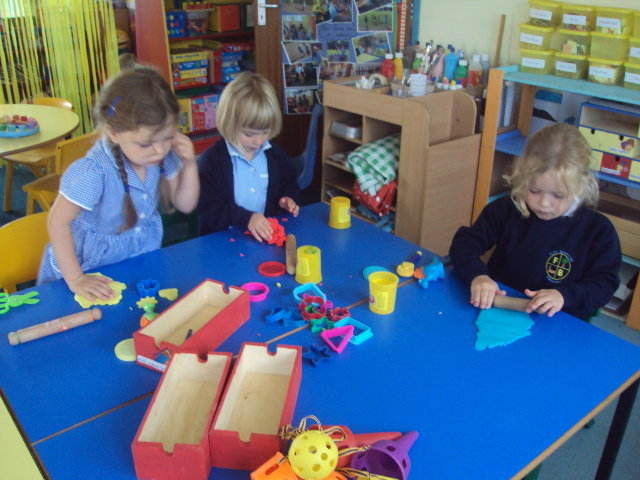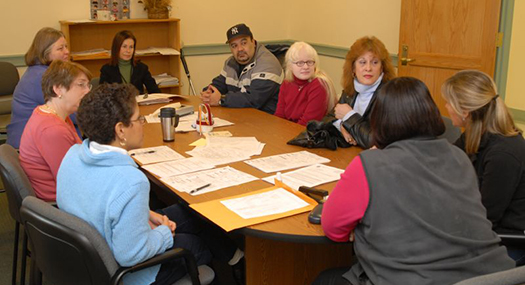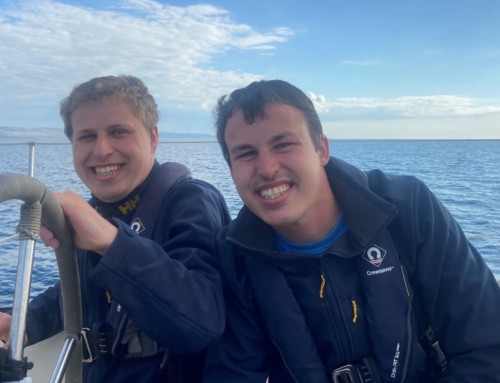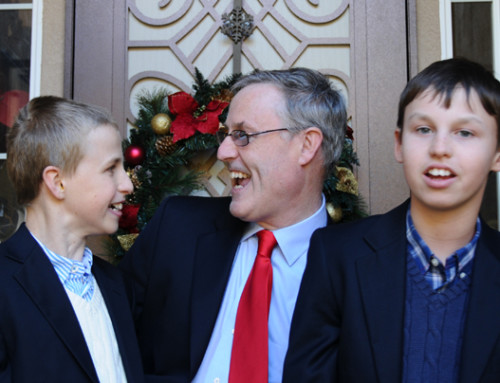Autism and getting the best out of school
I can’t believe the summer is all but gone and the children are returning to school. Even here at the national university of Ireland in Galway, the campus is coming alive with no less than 20,000 students. Having spent more than 20 years in industry surrounded by people my age, it’s really wonderful being among all this youth. It makes me feel just a little less gray and haggard by the years. And much like our other home in San Francisco, Galway is a piece of heaven.
Schools are about people not systems
 Given all this, I have been receiving lots of questions about starting school. And how to make the best of the opportunities that it creates. I’m going to leave the more formal aspects, like individual educational planning meetings (IEP) or other more ‘systemic’ stuff aside for now. What I want to do today is get into what I feel schooling is about and how best to maximize the experience for your child.
Given all this, I have been receiving lots of questions about starting school. And how to make the best of the opportunities that it creates. I’m going to leave the more formal aspects, like individual educational planning meetings (IEP) or other more ‘systemic’ stuff aside for now. What I want to do today is get into what I feel schooling is about and how best to maximize the experience for your child.
First off, I would say that schools are deeply human places. While schools are often described in terms of bricks and mortar, curriculum and tests, this is not what they are truly about. Schools are like villages of people across the age spectrum who come together to work and play. To get the best from each other, together. When I think about my years at school, I don’t remember when I discovered Newton. I remember the friends I made and the things we did. Sure, there is lots going on in schools at all kinds of levels with the adults (including parents) but that’s not what the school day is really about.
Communication challenges and visual learning
If schools are about building relationships how does this happen if your child can’t communicate? If he just wants to roll up into a ball and disappear? Or if she just wants to bolt out of the school? In the early years Conor and Eoin were known as the “Runners” right up to the school district supervisor. Blink and they were gone in different directions. One of the best special day class teachers we have ever worked with was Ginger Matich at the Proctor Terrace school in Santa Rosa. Val and I learned a lot from Ginger but in particular, she had two maxims which I will always remember.
The first was that language deficient children can work and learn from each other. I visit schools all the time and around the world. I see teachers putting huge pressure on themselves to teach children directly. Certainly, this needs to be done and personal contact is vital. But if you have a class including children with differing strengths, then mixing and matching the them to help each other can really work. In Ginger’s class Eoin was painfully shy and really had no expressive language. She put him with a couple of girls who were chatterboxes. He didn’t like it much but it was great for his language. They practically dragged it out of him. She grouped the kids on projects designed to drive collaboration which created opportunities for the kids to interact with each other.
Teaching through project activities
 The interesting thing about project work is you start with the end in mind. Like a picture. The child pulls in the information needed to get the job done. Traditionally, education is done by pushing information in. But if the child is language deficient this is very hard to do. Especially if you are not clear on how much language the child actually has. If communication breaks down, then behaviors almost always escalate. Want a pull learning example? When Conor was 8, he had no generalizable language. None. Yet he could build hundred piece puzzles. And he would collaborate with other children to do it. He would work from a dominant feature inside the picture and work outwards. If he couldn’t find the piece he would seek help. And when the puzzle was done, Conor knew and felt good about it.
The interesting thing about project work is you start with the end in mind. Like a picture. The child pulls in the information needed to get the job done. Traditionally, education is done by pushing information in. But if the child is language deficient this is very hard to do. Especially if you are not clear on how much language the child actually has. If communication breaks down, then behaviors almost always escalate. Want a pull learning example? When Conor was 8, he had no generalizable language. None. Yet he could build hundred piece puzzles. And he would collaborate with other children to do it. He would work from a dominant feature inside the picture and work outwards. If he couldn’t find the piece he would seek help. And when the puzzle was done, Conor knew and felt good about it.
Let’s reverse the learning process to a push approach. Take away the puzzle picture and give verbal instructions on what and how to do the task. Sound ridiculous? It goes on all the time and professionals wonder why they have meltdowns. This premise was one of the underpinning philosophies behind how we build the Disney language programs over at Animated Language Learning. And this was ultimately how Conor and Eoin learned language, just like solving a puzzle.
Merit systems and behavior
The other thing that Ginger spoke a lot about was actions had repercussions. Val arrived into school one morning and realized that Eoin’s books were left on the kitchen table. She was all apologies. But Ginger said no Mrs. Dodd, they were Eoin’s books, not yours. He’s going to hear about this later. And you know what happened? He never forgot his books again. No matter what language level your child is working from, he needs to be working from a merit system. He needs to know that in order to get that drive to the park, he needs to do the table top activities. Be it a simple PECS visual planner or an earned pocket money reward system…. It’s essential that your child, autistic or not, understands meritocracy. That is, how to live in our world of give and take and not fall into the trap of the snowflake generation.
Sensory integration watch outs
Having said all that, be careful with your child’s sensory integration (don’t know what this is – click here) needs. If these exist and are not addressed, it’s a complete game breaker: your child will not be able to attend to anything. Ginger started every day with a good run around the school before class with plenty of sensory breaks throughout the day. And she was a sports nut, athletic and competitive with her class having sport woven into their day, every day.
Summary
 Ready to run into your child’s special day class? Let the teacher have “it” in terms of what she is not doing, should be doing? Not so fast! In all the boys’ years at school I never asked a teacher to do anything that I wasn’t already doing at home. The speech and language development we were doing with Disney was working well before I asked for this in class. The process was endorsed by leading practitioners. The boys were engaged in swimming, gymnastics, tennis before we asked the school to fully include the boys in their PE programs and sports teams. We led as parents and through that leadership others followed. And believe me, schools and teachers attend to progressive parents. Because they know their efforts continue past the door of the classroom.
Ready to run into your child’s special day class? Let the teacher have “it” in terms of what she is not doing, should be doing? Not so fast! In all the boys’ years at school I never asked a teacher to do anything that I wasn’t already doing at home. The speech and language development we were doing with Disney was working well before I asked for this in class. The process was endorsed by leading practitioners. The boys were engaged in swimming, gymnastics, tennis before we asked the school to fully include the boys in their PE programs and sports teams. We led as parents and through that leadership others followed. And believe me, schools and teachers attend to progressive parents. Because they know their efforts continue past the door of the classroom.
I am often asked if I worked so well with teachers why did I sue the school district? Because of the educational systems and the law that existed at that time. I’ll tell you something else that was unsaid. The school district agreed with the judge’s decision when he found in our favor and learned from the experience as did we. And what was the most important lesson that we learned? That we needed to collaborate and learn from each other.







Leave A Comment